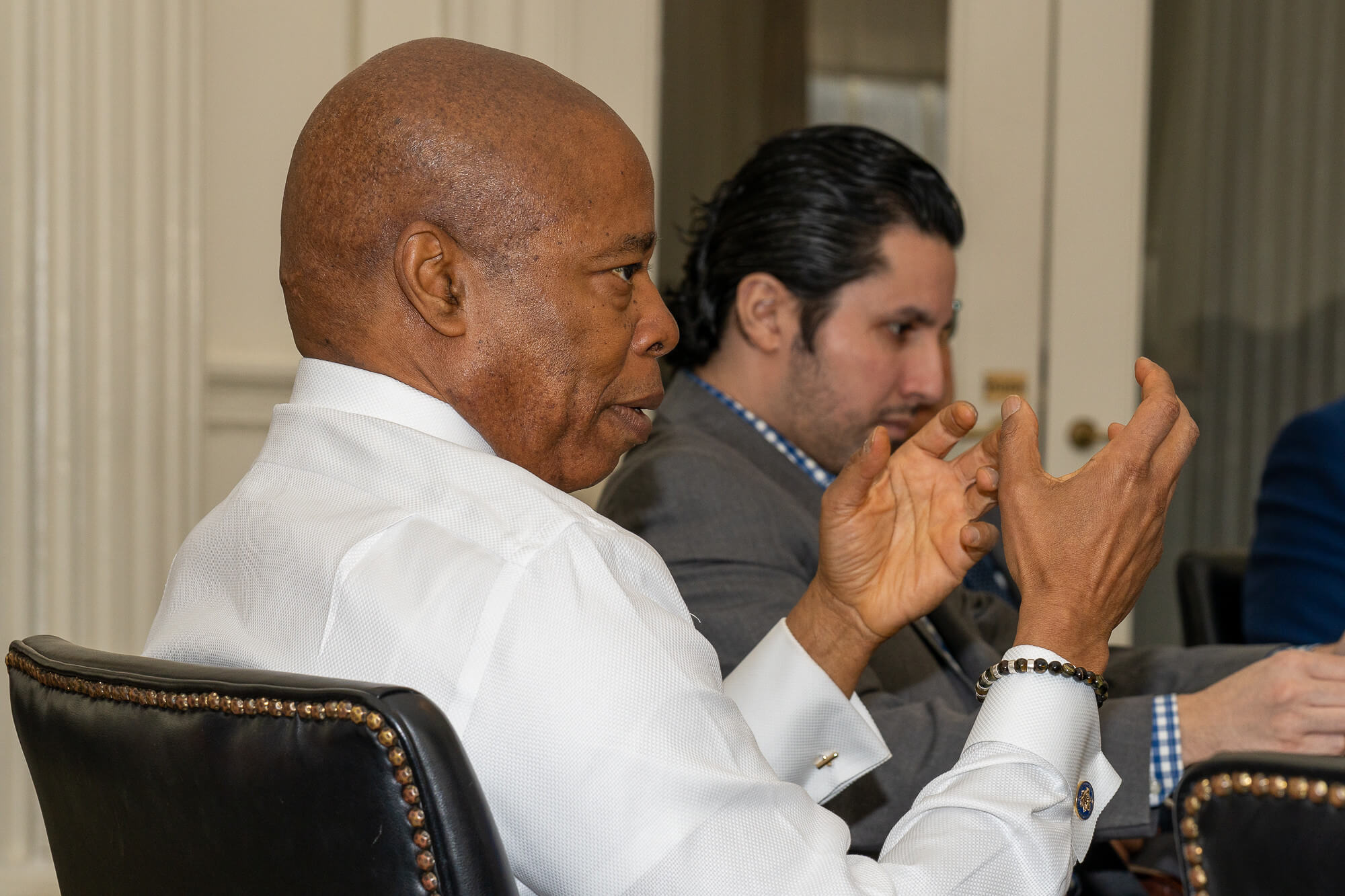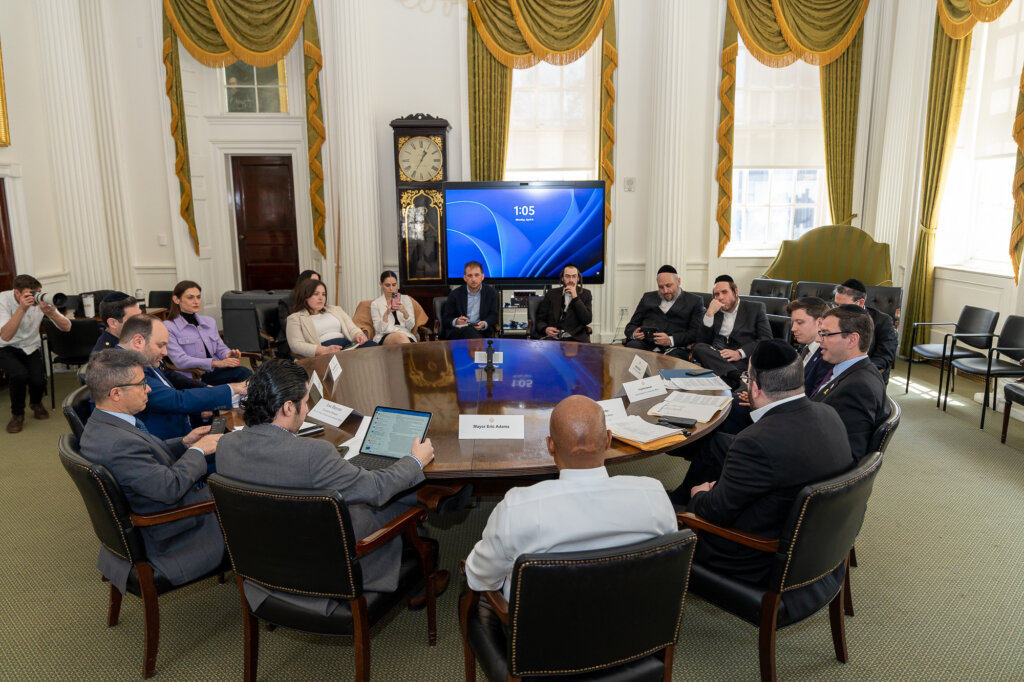NYC mayor says he ‘will not succumb’ to pressure to back ceasefire
‘I stand up strong for people,’ Eric Adams said at a City Hall roundtable

New York City Mayor Eric Adams April 8. Photo by Benny Polatseck/Mayoral Photography Office
New York City Mayor Eric Adams defended his staunch support of Israel Monday in the wake of growing calls for a ceasefire in Gaza and almost daily protests across the city.
“I stand up strong for people,” Adams said at a City Hall roundtable with members of Jewish media outlets ahead of the Passover holiday.
He cited instances when he stood with Muslims and other groups when they had come under attack, such as when Islamophobia spiked after 9/11. And while he has bemoaned the deaths of innocents since the war began, he has not called for Israel to restrain itself in Gaza.
“I’m going to continue to say it,” Adams told the journalists. “The hostages should be returned, Hamas should be destroyed, and we don’t want innocent children to die, nowhere.”
More than a hundred cities and towns across the U.S. have passed resolutions calling for a ceasefire in recent months, including Chicago, where Mayor Brandon Johnson cast the tie-breaking vote to pass the measure.
Like Adams, other big-city mayors, including Los Angeles’ Karen Bass and Washington, D.C., Mayor Muriel Bowser, haven’t explicitly called for a ceasefire. But unlike Adams, they haven’t been vocal in their support for Israel as the war has continued and claimed more Palestinian lives.
“The city government doesn’t have any role in decisions about war or peace,” Bowser told a protester who confronted her last month. “I am an anti-war American, but I rely on our national government to make decisions about America’s foreign policy and I trust our government to do that.”
New York is the U.S. city with the largest Jewish and Muslim populations that has not officially called for a ceasefire. A minority on its City Council — 17 of 51 members — have called for a permanent end to the war.
But anti-war protesters have been a constant presence in the city since Oct. 7, when Hamas attacked Israel, killing more than 1,200 people and kidnapping 240, prompting its military campaign in Gaza. More than 32,000 Palestinians have been killed in the war, according to the health ministry in Gaza. The New York Police Department last month reported that it sent officers to nearly 2,000 demonstrations in the past six months.
Adams has taken some heat from Arab and Muslim leaders for his stance, and some last month boycotted the mayor’s annual iftar reception, a celebration to end the daily fast during the Muslim holiday of Ramadan.
On Monday, Adams said protesters are within their rights as long as they abide by the law and don’t disrupt traffic. But he said they would not change his views on Israel.

Adams is often confronted by their calls to support a ceasefire in his travels around the city. He typically responds that Hamas must release the hostages it took on Oct. 7, and that Israel needs to destroy the terror group.
At the same time, he has won cheers from Israelis and supporters of Israel, particularly for a speech expressing solidarity with the Jewish state in the aftermath of the Oct. 7 attack.
“I’m not going to succumb to what people want me to say,” Adams said on Monday. “I’m going be the person that I’ve always been. And I’m going to be consistent in my message, that innocent people should not die and they should not be assaulted.”
Adams during the roundtable also noted the rise in antisemitic incidents in the city, including physical assaults, death threats and verbal harassment, particularly in Jewish neighborhoods and on college campuses.
The NYPD recorded 210 antisemitic incidents from October to March, a 100% increase in anti-Jewish crimes reported during the same period the previous year. Last month, the city recorded 75 hate crimes, a 56% increase compared to March 2023. Of those, 43 targeted Jews.
“You don’t want people living in fear in this city,” Adams said. “And if you can’t live in safety in this city, we have a big problem.”
















